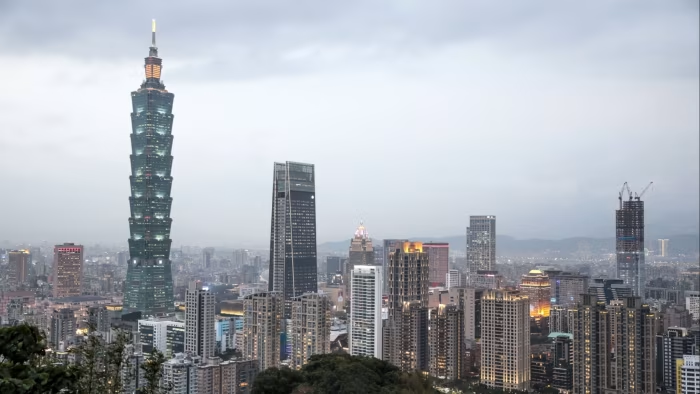Several major Taiwanese manufacturers are contemplating the establishment of secondary headquarters abroad to safeguard their operations in the event of a potential Chinese incursion into their homeland.
These preliminary strategies underscore the broader global trend toward securing supply chains, particularly among companies central to manufacturing networks, notably in the tech sector.
Rauniei Kuo, a partner and head of the family office business at KPMG in Taiwan, revealed, “We have clients who are exploring the possibility of setting up a second headquarters. These manufacturing groups are currently scouting locations in Southeast Asia, as a precautionary measure in case of an emergency in Taiwan, to provide them with an alternative operational base abroad that can be activated promptly.”
Taiwanese contract manufacturers have long been pivotal in global supply chains for electronic devices and components, spanning personal computers, smartphones, servers, and telecommunications equipment. They are increasingly venturing into markets for industrial automation, medical devices, and electric vehicles.
Notably, companies such as Lite-On and Qisda, specializing in electronic components and devices for consumer electronics, telecommunications, automotive, and medical applications, are among those exploring options for secondary headquarters abroad.
While Taiwanese experts deem a Chinese attack in the near term unlikely, mounting pressure from Beijing and military intimidation tactics have prompted numerous foreign companies and customers of Taiwanese groups to initiate contingency planning.
Driven by escalating costs in China and the US-China trade tensions, alongside customer demands for risk mitigation, major players like Foxconn and Pegatron, suppliers to Apple, are expanding operations in Southeast Asia, India, Mexico, the US, an
A global consultancy’s country head in Taiwan, speaking anonymously, noted that many companies are primarily focused on geographical diversification of production. However, discussions regarding backup headquarters have commenced at the executive level in leading conglomerates.
The country head emphasized the importance of replicating some key headquarters functions in a second location. He posed a critical question: “If a conflict forces us to halt operations in Taiwan for six months or a year, can we survive? You don’t need investor relations there, but essential functions like finance, payroll, and receivables are indispensable.”
Considering potential locations for secondary headquarters, the chief financial officer of one company mentioned Singapore due to the group’s expansion in two Southeast Asian countries. Additionally, discussions have included options like Japan, Switzerland, or the Netherlands, with the US being ruled out for tax-related reasons despite its significance as a market for Taiwanese tech firms.
This heightened contingency planning reflects broader structural changes in Taiwanese corporations as they adapt to operate across new jurisdictions. For instance, Topco, a supplier to semiconductor plants, has devised a decade-long plan to establish additional units in various regions and groom mid-level executives for leadership roles through cross-country rotations.
Despite these strategic shifts, some industry observers note that many companies are slow to act. While Taiwanese firms have demonstrated agility in adapting to evolving conditions, they are perceived as lacking in long-term planning.
Chaney Ho, founder of industrial computer maker Advantech, acknowledged that China’s military maneuvers around Taiwan in August 2022 prompted discussions about secondary headquarters. However, he argued that such structures may not be urgently necessary, suggesting that many functions could be handled virtually.
Notably, Qisda and Lite-On declined interviews with top executives, with a Qisda spokesperson stating that the group is not considering establishing a secondary headquarters abroad. Lite-On did not respond to requests for comment.

